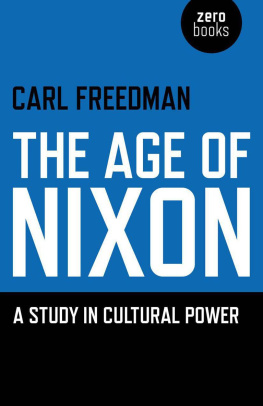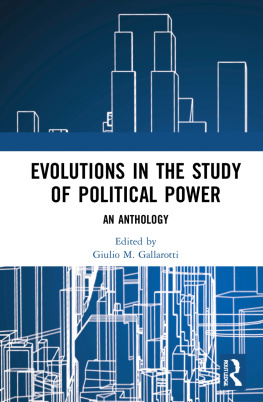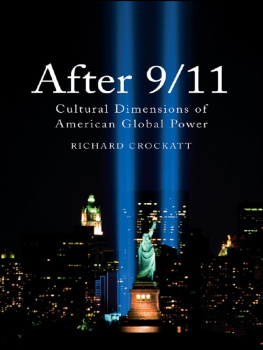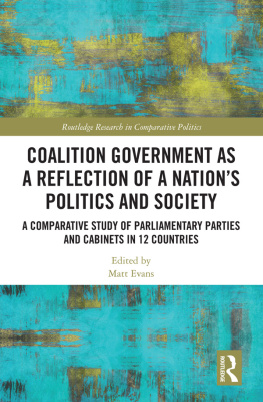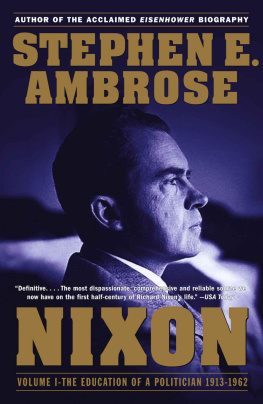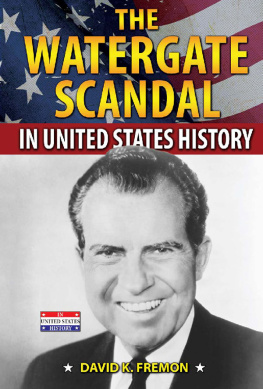WHAT PEOPLE ARE SAYING ABOUT
THE AGE OF NIXON
This is a wonderfully informed and enlightening exercise in cultural and political analysis, in which Freedman tackles the problem, just what was this man who was vice president, then a two-term president of the United States. It examines how Nixon's flaws - and his considerable strengths - fitted into, reflected, and finally illuminate philosophy, novels, and films, to produce, what, for better or for worse, can reasonably be called the Age of Nixon. Given the U.S.s recent turn toward the conservative, its amazingly timely and informative about the nature of such forces.
Samuel R. Delany , author of Dhalgren, Dark Reflections, and Times Square Red/Times Square Blue
Richard Nixon was real, for all that he seems like a fictional character concocted in the course of some strange literary collaboration between Fyodor Dostoyevsky, Theodore Dreiser, and J. G. Ballard. And Nixon continues to fascinate us, and to haunt our dreams, even these many years after his death. Carl Freedmans compelling book takes the full measure of Nixon the man, Nixon the media image, Nixon the myth, and even Nixon the ideal type, the quintessential expression, and the most capacious representative of the political and economic system under which we continue to live today.
Steven Shaviro , author of Connected, Without Criteria, and Post-Cinematic Affect
First published by Zero Books, 2012
Zero Books is an imprint of John Hunt Publishing Ltd., Laurel House, Station Approach,
Alresford, Hants, SO24 9JH, UK
www.o-books.com
For distributor details and how to order please visit the Ordering section on our website.
Text copyright: Carl Freedman 2010
ISBN: 978 1 84694 943 2
All rights reserved. Except for brief quotations in critical articles or reviews, no part of this book may be reproduced in any manner without prior written permission from the publishers.
The rights of Carl Freedman as author have been asserted in accordance with the Copyright, Designs and Patents Act 1988.
A CIP catalogue record for this book is available from the British Library.
Design: Stuart Davies
Printed in the UK by CPI Antony Rowe
Printed in the USA by Offset Paperback Mfrs, Inc
We operate a distinctive and ethical publishing philosophy in all areas of our business, from our global network of authors to production and worldwide distribution.
CONTENTS
Dedicated to:
My wife Annette, now and forever
Also dedicated to:
Chip Delany
Chris Kendrick
Steve Shaviro
valued friends and ideal readers of this book
I believe the second half of the twentieth century will be known as the Age of Nixon. Why was he the most durable public figure of our time? Not because he gave the most eloquent speeches, but because he provided the most effective leadership. Not because he won every battle, but because he always embodied the deepest feelings of the people he led. - Robert Dole
Nixons entire political careerand in fact his whole lifeis a gloomy monument to the notion that not even pure schizophrenia or malignant psychosis can prevent a determined loser from rising to the top of the heap in this strange society we have built for ourselves in the name of democracy and free enterprise. For most of his life, the mainspring of Richard Nixons energy and ambition seems to have been a deep and unrecognized need to overcome, at all costs, the sense of having been born guilty not for crimes or transgressions already committed, but for those he somehow sensed he was fated to commit as he grappled his way to the summit....Nixon really was one of usnot in Conrads sense of that term, or my own, but as an almost perfect expression of the American way of life that Id been so harshly immersed in for the past eight or nine months of traveling constantly around the country... Jesus! How much more of this cheapjack bullshit can we be expected to take from that stupid little gunsel? Who gives a fuck if hes lonely and depressed out there in San Clemente? If there were any such thing as true justice in this world, his rancid carcass would be somewhere down around Easter Island right now, in the belly of a hammerhead shark. - Hunter S. Thompson
Always give your best, never get discouraged, never be petty. Always remember: Others may hate you, but those who hate you dont winunless you hate them. And then, you destroy yourself. - Richard Nixon
In the fall of 1960, I possessedit is, probably, still somewhere to be found in my parents homea large lapel button that said, If I Were 21 Id Vote For Kennedy. I proudly wore it every day to my elementary school. I did not then know a great deal about John Kennedy, except that he was a United States senator from Massachusetts, and a Roman Catholic, and the Democratic nominee for president. Above all, I knew that he was running against Vice-President Richard Nixon. I didnt know a great deal more about Nixon, though I had a somewhat more specific impression of his political profile. Essentially, I regarded him as one of the most evil creatures ever to slither across the American political landscape. This was my parents view, but not only theirs: somehow it was generally in the air around me (in Chapel Hill, North Carolina, where I grew up). Evil is often fascinating (and not only to children), and I soon became quite interested in Nixonthough I eventually discarded evil as (for most purposes) a useful political category, and came to see that Nixon was far too complex to be encompassed by any simple moral label. My interest in Nixon continued to grow over the decades. I have been reading and otherwise learning about Richard Nixonand thinking about himfor half a century: that is, for most of my life and for a period of time equivalent to more than half of his.
I am not a professional historian or biographer. I have read the major, and many of the minor, historical and biographical works about Nixon, and I could never have written this book without them. But this volume is not intended as primarily a work of political history or biography, though it naturally contains a good deal of historical and biographical material. By both training and practice, I am a cultural critic and theorist, and this book, as its subtitle, I hope, makes clear, is meant to be a contribution to cultural studies. Though culture is most certainly interconnected with politics in many complex ways, the two categories are not identical; and I am primarily interested in the cultural significance of Richard Nixons political career, above all in the way that his political profile and political success are paradigmatic of many of the most important currents in American culture. Cultural critics have rarely taken a detailed interest in electoral politics, but I believe it is vitally important to do so. If we can understand Nixon, we will learn a great deal not only about the political history of the second half of the twentieth century in America, but, even more important, about the very character of this country of ourswhich is to say, we will learn a great deal about ourselves, even if that knowledge is not necessarily flattering.
Cultural studies is a thriving section of American (and British) academic scholarship today and one of which I myself am proud (on most days) to be a part. But this book is not intended solely, or even mainly, for my fellow scholars (though I naturally hope it will interest them). I am convinced that the so-called intelligent general reader is, despite some rumors to the contrary, still alive and well; and it is this reader whom I have kept in mind from the first to the last word of this volume. I believe that there are many readers who enjoy serious conceptual analysis of important social and cultural issues, even though they may lack the kind of specialized training that most academic writing tends to assume in its readership. Though I hope that, in content, this book never falls below proper scholarly standards in matters of fact or interpretation, I have tried to make it, in form, as accessible and enjoyable as possible for the lay reader: hence the avoidance of a technical theoretical vocabulary and of formal systems of documentationboth frequently essential in strictly academic writing, but often felt to be distracting and otiose by more general readers. I have been especially determined to write the book in this way precisely because sophisticated cultural analysis in the academy has very seldom chosen to focus on electoral politics. Since I am in this way breaking largely new ground, it seems sensible to do so in such a way as to reach the widest possible audience.

